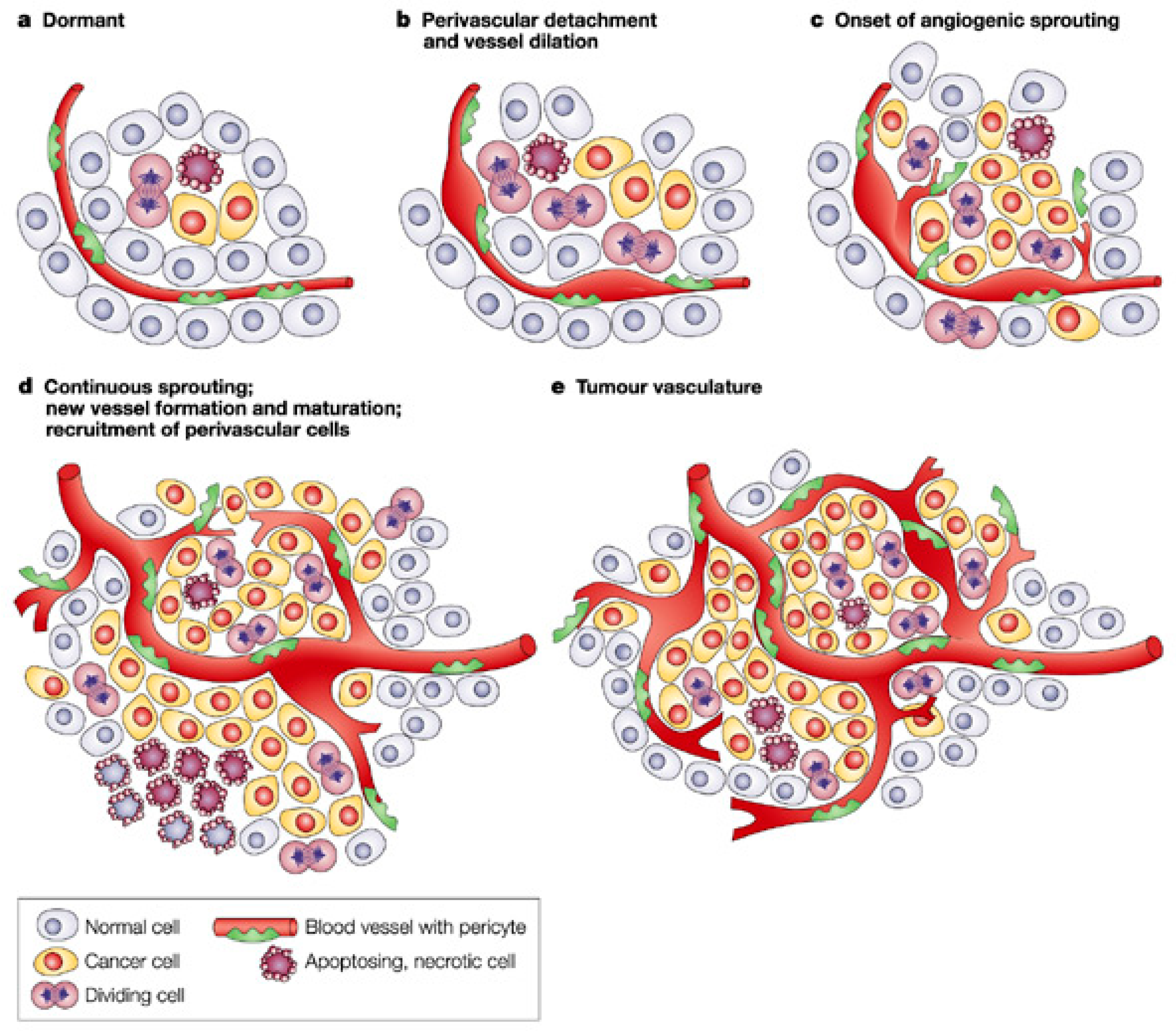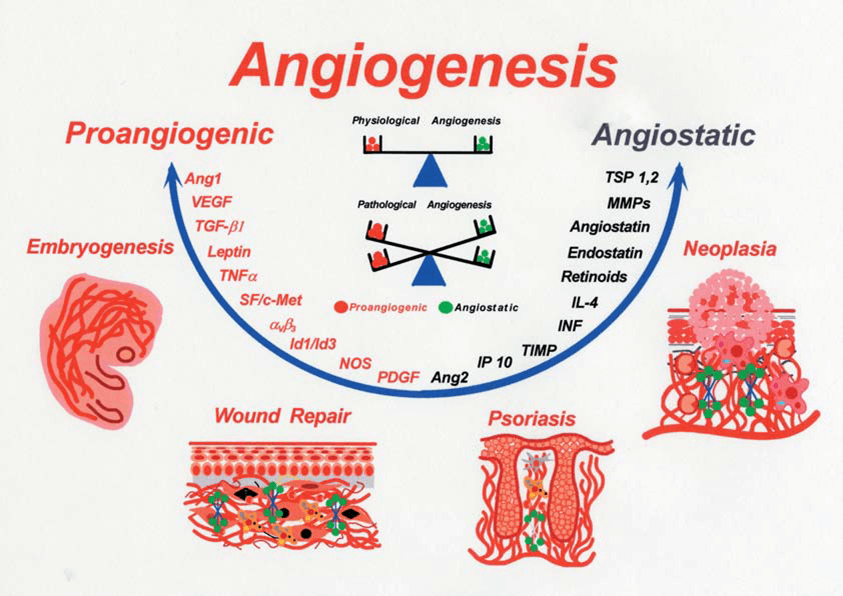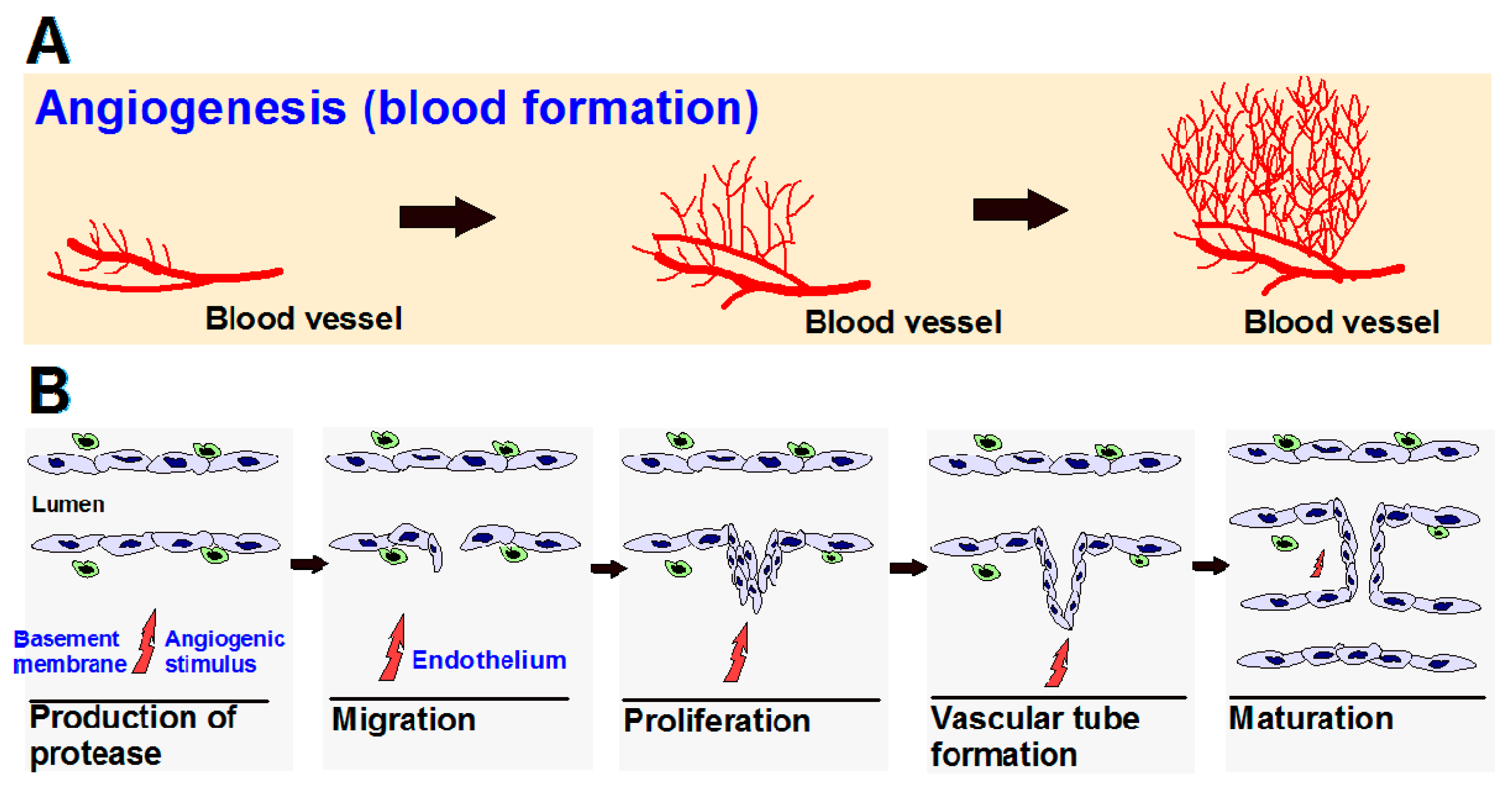Angiogenesis In Cancer Presentation
| Introduction to Angiogenesis in Cancer | ||
|---|---|---|
| Angiogenesis is the process by which new blood vessels are formed from pre-existing ones. In cancer, angiogenesis plays a crucial role in tumor growth and metastasis. Tumor cells release angiogenic factors that stimulate the formation of new blood vessels. | ||
| 1 | ||
| Mechanisms of Angiogenesis in Cancer | ||
|---|---|---|
| Tumor cells secrete vascular endothelial growth factors (VEGF) to promote angiogenesis. Other factors, such as fibroblast growth factor (FGF) and platelet-derived growth factor (PDGF), also contribute to angiogenesis. These factors bind to receptors on endothelial cells, leading to the activation of signaling pathways that promote blood vessel formation. | ||
| 2 | ||
| Importance of Angiogenesis in Cancer | ||
|---|---|---|
| Angiogenesis provides oxygen and nutrients to the growing tumor. It allows tumor cells to invade nearby tissues and promotes metastasis. Inhibition of angiogenesis can slow down tumor growth and prevent metastasis. | ||
| 3 | ||
| Diagnostic Tools for Assessing Angiogenesis | ||
|---|---|---|
| Immunohistochemistry can detect expression levels of angiogenic factors and their receptors in tumor tissues. Vascular density can be assessed using CD31 or CD34 staining. Non-invasive imaging techniques like dynamic contrast-enhanced magnetic resonance imaging (DCE-MRI) can measure blood flow and vessel permeability. | ||
| 4 | ||
| Therapeutic Strategies Targeting Angiogenesis | ||
|---|---|---|
| Anti-angiogenic drugs like bevacizumab (Avastin) block the action of VEGF, inhibiting blood vessel growth. Small molecule inhibitors, such as sunitinib (Sutent) and sorafenib (Nexavar), target multiple angiogenic pathways. Combination therapies that target both tumor cells and angiogenesis pathways show promise in cancer treatment. | ||
| 5 | ||
| Challenges and Limitations in Angiogenesis Targeted Therapy | ||
|---|---|---|
| Resistance to anti-angiogenic drugs can develop over time. Tumor heterogeneity can influence the response to anti-angiogenic treatment. Side effects, such as hypertension and impaired wound healing, are associated with anti-angiogenic therapy. | ||
| 6 | ||
| Future Directions in Angiogenesis Research | ||
|---|---|---|
| Identifying novel angiogenic targets for therapy. Developing predictive biomarkers to select patients who will benefit from anti-angiogenic treatment. Exploring combination therapies with immunotherapy to enhance anti-tumor immune response. | ||
| 7 | ||
| Clinical Applications of Angiogenesis Inhibitors | ||
|---|---|---|
| Anti-angiogenic drugs are approved for the treatment of various cancers, including colorectal, lung, and kidney cancer. They are also being investigated in clinical trials for other cancer types. Angiogenesis inhibitors have shown promise in combination with other treatment modalities, such as chemotherapy and radiotherapy. | ||
| 8 | ||
| Conclusion | ||
|---|---|---|
| Angiogenesis is a critical process in cancer progression and metastasis. Targeting angiogenesis has become an important therapeutic approach in cancer treatment. Further research is needed to overcome challenges and improve efficacy of anti-angiogenic therapies. | ||
| 9 | ||
| References (download PPTX file for details) | ||
|---|---|---|
| Folkman J. Tumor angiogenesis: therapeutic im... Carmeliet P, Jain RK. Angiogenesis in cancer ... Ferrara N, Adamis AP. Ten years of anti-vascu... |  | |
| 10 | ||








